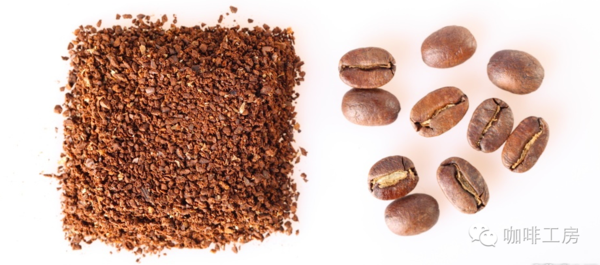Columbia Coffee tasting held to explore the unique charm of Colombian Coffee
Nowadays, more and more Chinese people know Colombian coffee and appreciate its flavor, which is inseparable from the efforts of the Colombian Coffee producers Association. Wu Jiahang, chief representative of the association's Greater China region, said, "Coffee trade between China and Colombia began 15 years ago, but the initial development is relatively slow. In 2006, we set up a representative office in China. Four or five years later, with more Colombian boutique coffee and specialty stores entering the Chinese market, Sino-Colombian coffee trade has entered a period of rapid growth, and Chinese customers' demand for high-quality coffee is also increasing. As the world's largest supplier of boutique coffee, Colombia has taken advantage of the situation to expand coffee exports to China year by year. "
The biggest difference between boutique coffee and ordinary coffee is that it pays more attention to the origin and planting links. Primary coffee beans account for 90% of Colombia's coffee exports. So when we talk about Colombian coffee, we pay more attention to the origin of the coffee. Wu Jiahang told reporters that the most popular products in the Chinese market are Na Linglong, Huilan and Cauca from southern Colombia and snow mountain coffee from the north. Since 2010, Colombia has also begun to promote roasted coffee belonging to different brands in China. "Juan Valdez is the most well-known roasted coffee, which entered the Chinese market eight years ago. Now Chinese consumers can easily buy it in large supermarkets. Today, we also brought you different brands of roasted coffee at the tasting meeting, hoping to give Chinese consumers more choices. We hope to make Chinese consumers appreciate and taste high-quality coffee with such efforts.
This relatively "primitive" mode of production maximizes the protection of local natural resources. In recent years, with the emergence of "experiential tourism" such as "coffee picking" and "coffee making", "experiential tourism" has also created new tourism growth points for Colombia. Colombian Ambassador to China Ms. Camensa Haramiu said, "people who are interested in Colombian coffee are generally in their 20tel and 40s, and they are also the main consumers of tourism products. We are holding this tasting today to let this group of people know about Colombian coffee and our country. Some people may ask me why I don't recommend sugar and milk when tasting. This curiosity about Colombian coffee will turn into curiosity about the whole country, and even make the Chinese interested in Colombian music, salsa dance, gems and historical sites. " Juan Barbaro Carrio, export consultant for the Colombian Trade Promotion Group, said that Colombian coffee has a perfect taste thanks to its unique growing environment: "Colombia is located in the northern part of South America. Surrounded by the Caribbean, the Pacific and the Andes. This geographical environment makes coffee producing areas like spring all year round, with moderate rainfall, which is conducive to the growth of coffee beans. In addition, because the producing areas are located in mountainous areas and cannot be picked on a large scale, local farmers still work by hand, and even tractors are difficult to use. "

Important Notice :
前街咖啡 FrontStreet Coffee has moved to new addredd:
FrontStreet Coffee Address: 315,Donghua East Road,GuangZhou
Tel:020 38364473
- Prev

Grinding scale of Guatemalan coffee beans introduction to the taste manor of the regional treatment method of coffee beans in Guatemala
Antigua Island (Antigua) is a famous producer of coffee. Rich volcanic soil, low humidity, strong sunlight and cool night winds are the characteristics of Antigua. Three spectacular active volcanoes ── Agua, Acatenango and Fuego form a beautiful valley. Fuego active volcano also adds misty dust from time to time. Every 30
- Next

Introduction of Starbucks Coffee Bean Grinding scale Classification, characteristics, Flavor description and treatment method
At this time, you should bring a small alarm clock. Keep an eye on the time. After the water is boiled. The water will flow slowly down the glass tube inserted into the lower seat to the upper seat. Move the next seat at this time. Get away from the fire. And turn down the fire. Moving the coffee pot back! At this time, you have to stir with a coffee spoon. I remember. Stir counterclockwise. Don't be clockwise and counterclockwise. Stir it in the same direction.
Related
- Detailed explanation of Jadeite planting Land in Panamanian Jadeite Manor introduction to the grading system of Jadeite competitive bidding, Red bid, Green bid and Rose Summer
- Story of Coffee planting in Brenka region of Costa Rica Stonehenge Manor anaerobic heavy honey treatment of flavor mouth
- What's on the barrel of Blue Mountain Coffee beans?
- Can American coffee also pull flowers? How to use hot American style to pull out a good-looking pattern?
- Can you make a cold extract with coffee beans? What is the right proportion for cold-extracted coffee formula?
- Indonesian PWN Gold Mandrine Coffee Origin Features Flavor How to Chong? Mandolin coffee is American.
- A brief introduction to the flavor characteristics of Brazilian yellow bourbon coffee beans
- What is the effect of different water quality on the flavor of cold-extracted coffee? What kind of water is best for brewing coffee?
- Why do you think of Rose Summer whenever you mention Panamanian coffee?
- Introduction to the characteristics of authentic blue mountain coffee bean producing areas? What is the CIB Coffee Authority in Jamaica?

